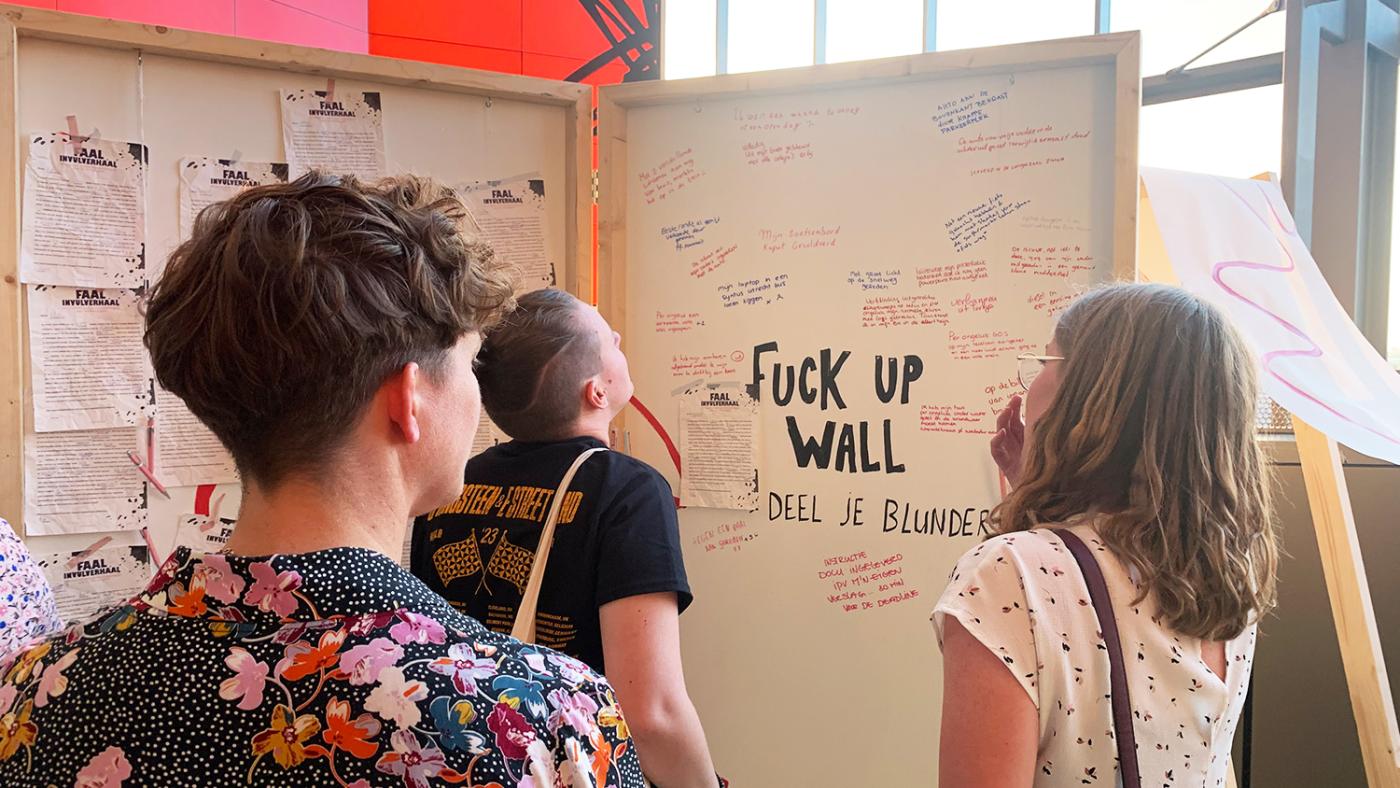Learning moments
Students' fear of failure partly caused by their examples

As scientists we will fail during more than half of our research. Our students can therefore better get used to failing. Yet the exact opposite is happening: fear of failure is only increasing among students. And if we’re being honest, part of the problem can be attributed to us scientists, and the broader culture in which we operate.
Researchers do not like to talk about their mistakes. Researchers are often reluctant to discuss their mistakes. If you browse the published literature, you only read success stories: experiments that worked, results that align perfectly with expectations, and not a mention about setbacks. Of course, reality is different: scientists fail constantly. This is inevitable in a field where the unknown is our work domain.
But what does failure actually mean? One definition is: setting a goal and not achieving it. Logically, failure is thus a part of life; humans are not omniscient, so they must sometimes make decisions without absolute certainty – decisions that won’t always turn out as we hope. Yet, many students and researchers see failure as a personal shortcoming. They wrongly equate failing with being a failure. This reflects a flawed worldview in which people base their self-worth on others’ opinions instead of objective self-evaluation.
This worldview is reflected in the tendency of students and researchers to compare themselves with others. Success isn’t measured by personal progress but in relation to others. ‘If others fail less than we do, then they’re successful and we’re failures.’ But this way of thinking makes no sense; our goals are personal, and success and failure can’t be measured by comparison to others.
I’m guilty of this myself. After realizing that chemistry wasn’t for me, I continued comparing myself to former classmates for a long time. They were now pursuing PhDs in chemistry, while I was still immersing myself in philosophy. It felt as if I were a failure. But it’s actually positive that I discovered where my passion truly lies – if my goal is to be happy, then it makes no sense to compare myself to people who find happiness in very different things.
The alternative to measuring success by others is to look at what we ourselves want to achieve and how we can get the best out of ourselves. To set goals based on what makes us happy and strive to reach those goals to the best of our abilities. Success will then look different for each individual.
It’s telling that many in academia seek to resolve performance pressure by letting go of the drive for success. However, the problem isn’t the focus on success but rather sweeping failures under the rug on our way to success. We give students the idea that no one else fails and don’t emphasize that success is different for each individual. I would therefore like to see us teach our students to embrace mistakes as learning moments and to recognize that success comes in various forms, rather than pretending failure doesn’t exist—or worse, that success isn’t something worth striving for.